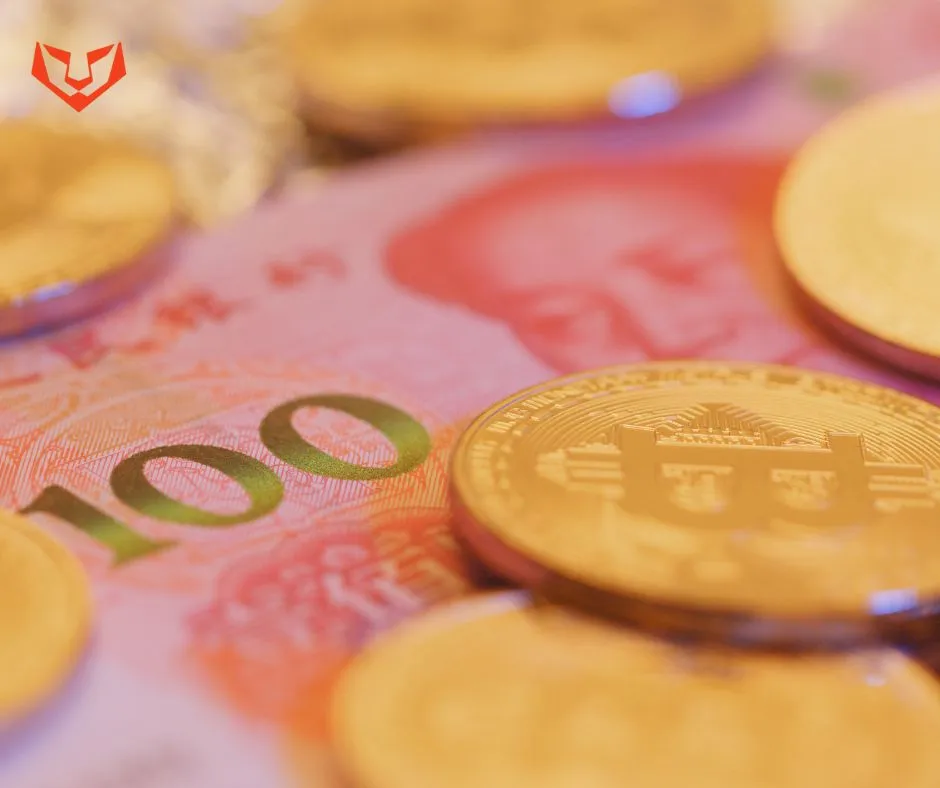
China Looks to Re-Entre Crypto as Chinese National's Establish Laundromats to Hide Crypto Trading
China's strict stance on crypto currency trading has been a significant barrier to the global expansion of digital assets. However, recent developments indicate mounting pressure for Beijing to reconsider its crypto ban. Despite stringent regulations Chinese nationals are finding creative ways to bypass the restrictions highlighting the persistent demand for crypto currencies within the country.
China officially banned crypto currency trading in 2021 marking the culmination of a years long crackdown. This move drove major crypto centralized exchanges (CEX) like Binance to relocate their operations abroad. Authorities have detained, fined and jailed individuals involved in crypto trading. Nevertheless, crypto currency trading remains prevalent in the country particularly in regions like Chengdu where enforcement is relatively lax.
Recent market dynamics and geopolitical factors have intensified the call for China to re-enter the crypto market. The Federal Reserve's warnings and significant market fluctuations have put crypto currencies like Bitcoin, Ethereum and XRP under immense pressure. These fluctuations show the volatility and the need for stabilization which a major player like China could potentially provide.
The global crypto market has been experiencing turbulence due to various external factors including large scale BTC sell offs by governments and entities like the Mt. Gox repayments. The return of over 141,000 BTC to creditors has sparked fears of a supply surge that could further destabilize the market. The German and US governments hold substantial BTC reserves and their market activities have heightened concerns about potential price crashes.
China's re entry into the crypto market could counterbalance these supply side pressures. As the world's second largest economy, China's participation could stabilize demand and potentially absorb the excess supply mitigating the impact of large sell offs by other governments. This potential market shift has led experts to speculate that Beijing might reconsider its ban to leverage the economic benefits of crypto assets.

Strong Strategy For China
There are indications that China might be eyeing Bitcoin and other crypto currencies as alternatives to gold. The People's Bank of China (PBoC) reportedly halted its gold purchases in May leading to speculation about a strategic shift towards digital assets. Crypto currencies particularly Bitcoin are increasingly viewed as a hedge against the weakening US dollar which could make them attractive to Beijing in the current economic climate.
How Chinese Nationals Are Circumventing the Ban
Despite the official ban many Chinese investors have found ways to continue participating in the crypto market. This underground network includes the use of brokers, VPNs and laundromats to facilitate transactions and evade regulatory scrutiny.
Inland regions like Chengdu have seen the rise of an underground network of brokers who act as intermediaries for crypto transactions. These brokers help small investors navigate the complex regulatory landscape, enabling them to buy and sell crypto currencies discreetly.

How They're bypassing the ban
Virtual Private Networks (VPNs) are a common tool for bypassing China's strict internet censorship, known as the Great Firewall. By using VPNs, Chinese nationals can access international crypto exchanges and trading platforms that are otherwise blocked in the country. This method allows them to participate in the global crypto market without detection by local authorities.
Recent police raids have exposed the scale of underground financial networks that facilitate illegal foreign exchange transactions and crypto trading. These operations often referred to as laundromats, involve large sums of money. In May alone, authorities uncovered an underground bank linked to 13.8 billion yuan (USD 1.9 billion) in illegal transfers and another gang involved in about 2 billion yuan of unauthorized conversions.
The mounting pressure for China to reconsider its crypto ban is driven by both internal demand and external market forces. Despite stringent regulations, Chinese nationals continue to find ways to engage in crypto trading showing the persistent interest and potential economic benefits.
As global markets grapple with volatility and supply pressures, China's re-entry into the crypto market could provide much-needed stability and drive significant shifts in the supply-demand dynamics. Whether Beijing will seize this opportunity remains to be seen but the ongoing developments suggest that a policy reversal could be on the horizon.
Which is an exciting time for an emerging tech based industry especially with the current global economy going backwards and many people around the world looking for alternative ways to earn income to fight inflation. But it is still yet to be seen on how things pan out.
Image sources provided supplemented by Canva Pro subscription. This is not financial advice and readers are advised to undertake their own research or seek professional financial services.